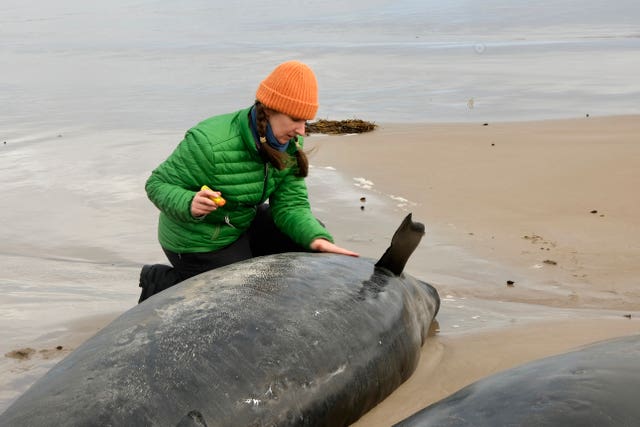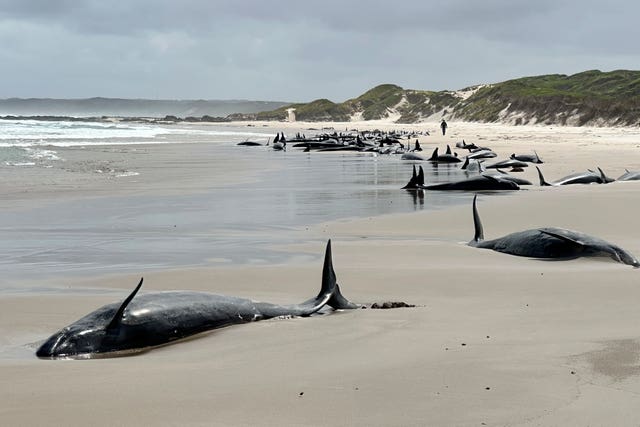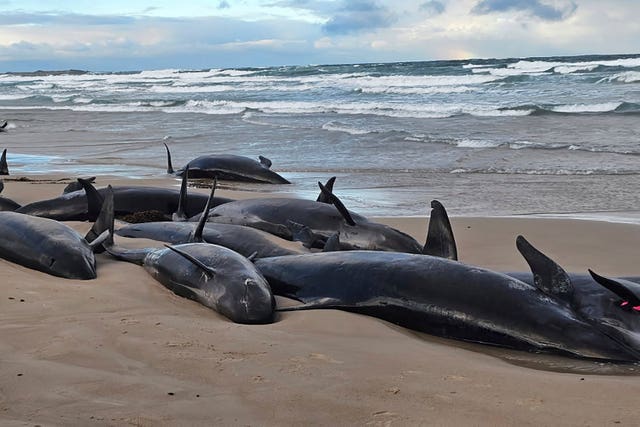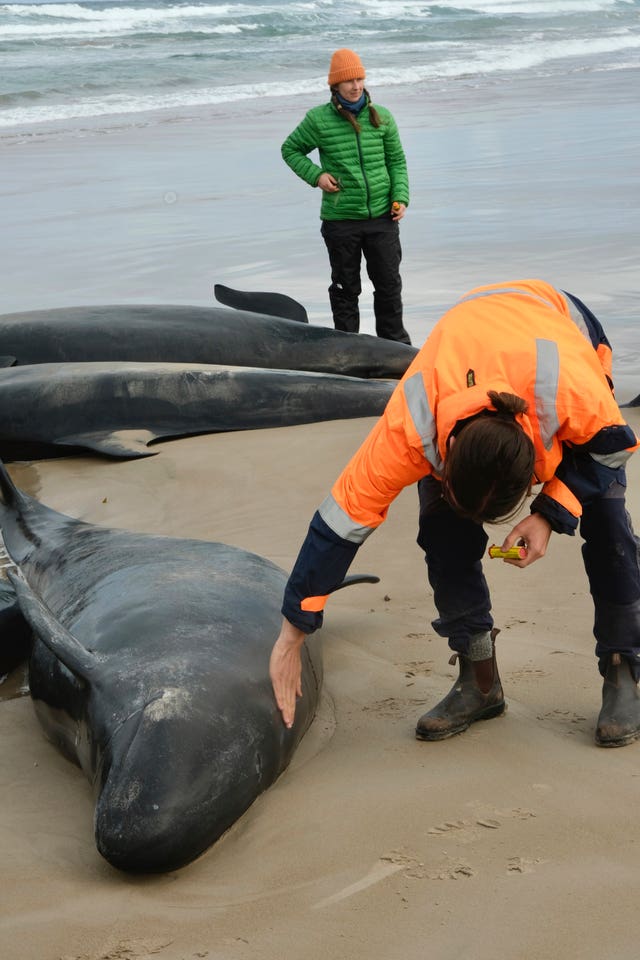Experts give up hope for 157 false killer whales stranded on Tasmania beach
Unfavourable ocean and weather conditions thwarting rescue efforts are forecast to persist for days and the surviving animals will be euthanised.

Marine experts have given up hope of rescuing more than 150 false killer whales that stranded on a remote beach on Australia’s island state of Tasmania, officials said on Wednesday.
Experts including veterinarians were at the scene near Arthur River on Tasmania’s north-western coast where 157 whales were discovered on an exposed surf beach on Tuesday, the Department of Natural Resources and Environment said.
Unfavourable ocean and weather conditions, which prevented the whales from being rescued on Wednesday, were forecast to persist for days, incident controller Shelley Graham said.
“We have been out in the water this morning and have relocated and attempted to refloat two whales but didn’t have success as the ocean conditions weren’t allowing the animals to get past the break. The animals are continuously restranding,” she said.
Marine biologist Kris Carlyon said the survivors will be euthanised.
“The longer these animals are out stranded, the longer they are suffering. All alternative options have been unsuccessful,” he said.

The department said there were 136 survivors on Wednesday morning but that assessment was revised down to 90 within a few hours.
The inaccessibility of the beach, ocean conditions and challenges in getting specialist equipment to the remote area complicated the response.
The young whales weighed as little as 1,100lb (500kg), while the adults weighed three tonnes.

Department liaison officer Brendon Clark said the stranding was the first by false killer whales in Tasmania in since 1974. That was a pod of more than 160 which that landed on a beach near Stanley on the north-west coast. Strandings in Tasmania are usually pilot whales.
Mr Clark declined to speculate on why the latest pod might have stranded. Carcasses of dead whales will be examined for clues, he said.
A helicopter reconnaissance on Tuesday afternoon determined that there were no other whales within six miles (10km) of the stranded pod, he said.
Some could have been stranded for as long as 48 hours by early Wednesday.

Arthur River resident Jocelyn Flint said her son had discovered the stranded whales at around midnight while out fishing for shark.
She said she had gone to the scene in the early hours of the morning and returned after dawn but the whales were too big to attempt to refloat them.
“The water was surging right up and they were thrashing. They’re just dying, they’ve sunk down in the sand,” she said Wednesday morning. “I think it’s too late.”
“There are little babies. Up one end, there’s a lot of big ones. It’s sad,” she added.

In 2022, 230 pilot whales stranded further south on the west coast at Macquarie Harbour.
The largest mass-stranding in Australian history occurred in the same harbour in 2020 when 470 long-finned pilot whales became stuck on sandbars. Most of the beached whales died on both occasions.
The reasons for the beachings are unclear. Reasons could include disorientation caused by loud noises, illness, old age, injury, fleeing predators and severe weather.





